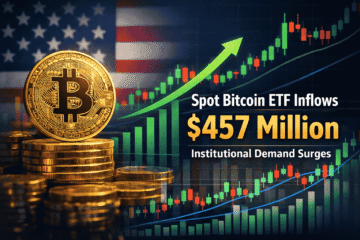
Photo by André François McKenzie on Unsplash
Technological Advancements and Their Impact
As the cryptocurrency market continues to mature, technological advancements are poised to play a pivotal role in shaping its future landscape. One of the critical areas of development is blockchain scalability. Traditional blockchain networks have faced issues with transaction speed and throughput. Emerging solutions like sharding and layer-2 protocols aim to address these limitations. Sharding involves dividing the blockchain into smaller, manageable pieces, or ‘shards,’ to process transactions in parallel, thereby significantly boosting efficiency. Layer-2 protocols, such as the Lightning Network for Bitcoin, facilitate off-chain transactions that are eventually settled on the main blockchain, reducing congestion and enhancing scalability.
Another revolutionary trend is the rise of decentralized finance (DeFi). DeFi platforms leverage smart contracts to offer financial services like lending, borrowing, and trading without intermediaries. This democratization of finance is expected to evolve, with more sophisticated products and services, potentially disrupting traditional financial systems. Non-fungible tokens (NFTs) have also garnered significant attention, representing unique digital assets on the blockchain. While NFTs are currently popular in the art and entertainment industries, their applications could extend to various sectors, influencing market dynamics by creating new opportunities for asset tokenization.
Quantum computing presents both a challenge and an opportunity for the crypto market. On one hand, quantum computers could potentially break current cryptographic algorithms, posing a considerable threat to blockchain security. On the other hand, advancements in quantum-resistant cryptography aim to mitigate this risk, ensuring the continued integrity of blockchain networks. Researchers and developers are actively working on integrating quantum-safe algorithms to safeguard against potential vulnerabilities.
Artificial intelligence (AI) and machine learning (ML) are also making inroads into the cryptocurrency space. AI-driven trading algorithms and ML-based market analysis tools offer enhanced capabilities for predicting market trends, optimizing trading strategies, and managing risks. The integration of these technologies could lead to more efficient markets, providing investors with deeper insights and improved decision-making tools. As these technological advancements unfold, their collective impact on the crypto market will be profound, driving innovation and shaping the future of digital finance.
Regulatory Developments and Market Maturity
As the cryptocurrency market continues to evolve, regulatory developments are set to play a pivotal role in shaping its future. Recent trends indicate a concerted effort by governments and regulatory bodies across the globe to establish clearer frameworks for digital assets. In the United States, for instance, the Securities and Exchange Commission (SEC) and the Commodity Futures Trading Commission (CFTC) have been increasingly active in providing guidance and enforcement actions to ensure market integrity and protect investors. Legislative initiatives, such as the proposed Cryptocurrency Act, aim to classify digital assets more precisely and delineate regulatory oversight among various agencies.
In Europe, the European Union’s Markets in Crypto-Assets (MiCA) regulation seeks to create a comprehensive regulatory framework for digital assets, ensuring uniformity across member states. This legislation is expected to bring greater transparency and security to the market, fostering trust among institutional investors and retail participants alike. Similarly, in Asia, countries like Japan and South Korea have been at the forefront of crypto regulation, implementing stringent measures to curb illicit activities while promoting innovation and growth in the sector.
Increased regulatory clarity is anticipated to have a profound impact on market participants. Exchanges, investors, and developers will benefit from a more predictable and stable environment, reducing the risks associated with legal uncertainties. Moreover, greater transparency and compliance are likely to attract institutional investors, who have traditionally been wary of the crypto market due to regulatory ambiguities. As a result, the market could witness enhanced liquidity and maturity, contributing to long-term stability.
The introduction of central bank digital currencies (CBDCs) represents another significant development. CBDCs, issued by central banks, could coexist with private cryptocurrencies, potentially driving wider acceptance and use of digital assets. The interplay between CBDCs and existing cryptocurrencies could reshape the financial landscape, offering new opportunities and challenges for market participants.
Global regulatory harmonization remains a key consideration for the future of the crypto market. Aligning regulations across jurisdictions could facilitate cross-border transactions and international market integration. Such harmonization would simplify compliance for global businesses and foster a more coherent and efficient global crypto ecosystem.
As the regulatory landscape evolves, compliance will become increasingly crucial. The emergence of new compliance technologies and services will aid market participants in meeting regulatory requirements efficiently. By leveraging advanced tools such as blockchain analytics and automated reporting systems, businesses can ensure adherence to regulations while maintaining operational efficiency.
ARK cuts Coinbase again with $22M sale as Bullish position grows
February 9, 2026
Comments are closed.
Bitcoin News
-
ARK cuts Coinbase again with $22M sale as Bullish position grows
February 9, 2026 -
JPMorgan Launches First Tokenized Money Market Fund on Ethereum
December 16, 2025
Most Viewed
-
ARK cuts Coinbase again with $22M sale as Bullish position grows
February 9, 2026 -
JPMorgan Launches First Tokenized Money Market Fund on Ethereum
December 16, 2025










